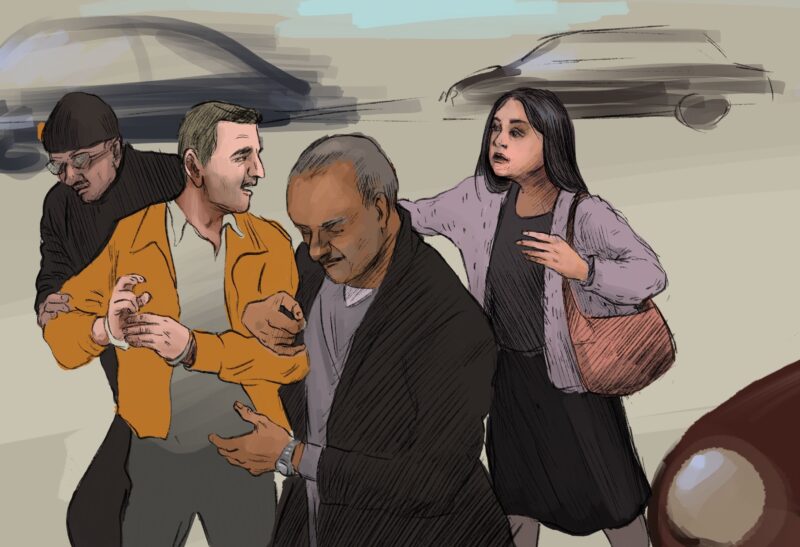An oil worker lost his life and three others were injured in an accident on the Caspian island of Qum on drilling rig N. 409 on March 20.
Employees informed Meydan TV of the accident. According to the report, the victim was Ayaz Mammadov, a 44-year-old Baku resident.
Head of the Committee for the Protection of Petroleum Workers (OWRPO) Mirvari Qahremanli confirmed the incident and told Meydan TV that “the welder fell through a gap in the rig into the sea and died from his injuries. We have received information about other victims, as well”.
The drilling rig is operated by Emirati company Bahar Energy Ltd, which signed a production-sharing agreement with SOCAR – the State Oil Company of Azerbaijan – back in 2009.
The accident occurred on the day of Novruz. Due to the festivities, the company was not available for comment on Monday.
According to Qahremanli, workers should not have been working on the holidays and the fact that they were is a violation of Azerbaijan’s labor code.
“As far as I know, on the island of Qum people work in very bad conditions. Violation of labor rights in Azerbaijan is a frequent occurrence”, Qahremanli told Meydan TV.
The incident is the latest in a series of gas and oil-related accidents in the country, many of which have put security standards in the country’s oil and gas industry into question.
On December 14, 2015, an oil worker died and 30 went missing after a fire broke out on Platform 10 on the Guneshli oil field located 120 kilometres east of Baku. The fire followed an explosion on an underwater high-pressure gas pipeline that was damaged during a storm.
One year later on December 15, one oilfield worker died and nine went missing after heavy winds caused the collapse of an 150-meter-long pier of oil and gas extraction point number 3 of the Oil and Gas Production Department named after Nariman Narimanov of the Azneft Production Association in the Caspian Sea.
Qahremanli
told Radio Free Europe that three other accidents occurred at the same station in 2014. As a result of which a total of five people lost their lives.
“It’s oil first, people second’, just like in Soviet times. The human factor is devalued. It should be the other way round: people first, and then the oil. People should have been evacuated in a timely way. Attention should have been paid to these safety issues. But the human factor comes last”,
said
Qahremanli in relation to the December 2016 accident.
According to the Azerbaijani labor code, each worker working on standard working hours should not work for more than 8 hours per day or more than 40 hours per week. Over time is permitted, but it should not exceed 2 hours per day in areas where working conditions are difficult and the workplace is hazardous.
In addition, in the case of the death of a worker “the heirs of the deceased shall receive an allowance equal to three times the average monthly wage”.
Loss of life due to hazardous working conditions and property damage due to negligence in construction are frequent occurrences in Azerbaijan – many sources point to corruption as a source of
cut-corners.



